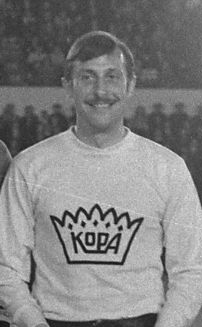
Nazi Germany, officially known as the German Reich and later the Greater German Reich, was the German state between 1933 and 1945, when Adolf Hitler and the Nazi Party controlled the country, transforming it into a totalitarian dictatorship. The Third Reich, meaning "Third Realm" or "Third Empire", referred to the Nazi claim that Nazi Germany was the successor to the earlier Holy Roman Empire (800/962–1806) and German Empire (1871–1918). The Third Reich, which the Nazis referred to as the Thousand-Year Reich, ended in May 1945, after only 12 years, when the Allies defeated Germany and entered the capital, Berlin, ending World War II in Europe.
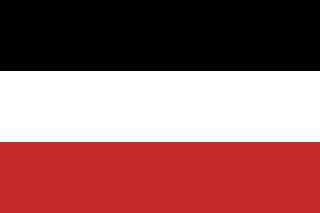
The Republic of Upper Volta was a landlocked West African country established on 11 December 1958 as a self-governing state within the French Community. Before becoming autonomous, it had been part of the French Union as the French Upper Volta. On 5 August 1960, it gained full independence from France. On 4 August 1984, it changed its name to Burkina Faso.

The Eurovision Song Contest 1960 was the fifth edition of the annual Eurovision Song Contest, held on Tuesday 29 March 1960 at the Royal Festival Hall in London, United Kingdom, and hosted by British television presenter and actress Catherine Boyle. Organised by the European Broadcasting Union (EBU) and host broadcaster the British Broadcasting Corporation (BBC), the United Kingdom was offered the rights to stage the contest after the Netherlands, which had won the 1959 contest, declined the opportunity after having organised the event in 1958.
High commissioner is the title of various high-ranking, special executive positions held by a commission of appointment.

The French colonial empire comprised the overseas colonies, protectorates, and mandate territories that came under French rule from the 16th century onward. A distinction is generally made between the "First French colonial empire", that existed until 1814, by which time most of it had been lost or sold, and the "Second French colonial empire", which began with the conquest of Algiers in 1830. On the eve of World War I, France's colonial empire was the second-largest in the world after the British Empire.

Ubangi-Shari was a French colony in central Africa, a part of French Equatorial Africa. It was named after the Ubangi and Chari rivers along which it was colonised. It was established on 29 December 1903, from the Upper Ubangi and Upper Shari territories of the French Congo; renamed the Central African Republic (CAR) on 1 December 1958; and received independence on 13 August 1960.

The 1960 European Nations' Cup was the inaugural tournament of the UEFA European Championship, held every four years and organised by UEFA. The first tournament was held in France. It was won by the Soviet Union, who beat Yugoslavia 2–1 in Paris after extra time.

The 1960 French Grand Prix was a Formula One motor race held at Reims-Gueux on 3 July 1960. It was race 6 of 10 in the 1960 World Championship of Drivers and race 5 of 9 in the 1960 International Cup for Formula One Manufacturers.
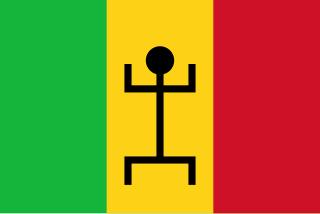
The Mali Federation was a federation in West Africa linking the French colonies of Senegal and the Sudanese Republic for two months in 1960. It was founded on 4 April 1959 as a territory with self-rule within the French Community and became independent after negotiations with France on 20 June 1960. Two months later, on 19 August 1960, the Sudanese Republic leaders in the Mali Federation mobilized the army, and Senegal leaders in the federation retaliated by mobilizing the gendarmerie ; this resulted in a tense stand-off, and led to the withdrawal from the federation by Senegal the next day. The Sudanese Republic officials resisted this dissolution, cut off diplomatic relations with Senegal, and defiantly changed the name of their country to Mali. For the brief existence of the Mali Federation, the premier was Modibo Keïta, who would later become the first President of Mali, and its government was based in Dakar, the eventual capital of Senegal.

"Tom Pillibi" is a song recorded by French singer Jacqueline Boyer with music composed by André Popp and French lyrics written by Pierre Cour. It was released as a single on 10 April 1960. It represented France in the Eurovision Song Contest 1960 held in London, winning the contest. It was covered by several artists including Julie Andrews.

The 1960 Tour de France was the 47th edition of the Tour de France, one of cycling's Grand Tours. It took place between 26 June and 17 July, with 21 stages covering a distance of 4,173 km (2,593 mi). The race featured 128 riders, of which 81 finished, and was won by the Italian Gastone Nencini.
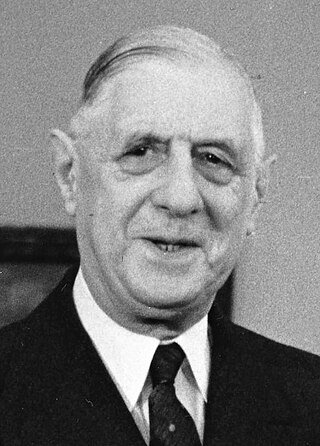
Legislative elections were held in France on 23 and 30 November 1958 to elect the first National Assembly of the French Fifth Republic.
The football tournament at the 1960 Summer Olympics was held from 26 August to 10 September in 1960 throughout Italy. The tournament featured 16 men's national teams from four continental confederations. The 16 teams were drawn into four groups of four and each group played a round-robin tournament. At the end of the group stage, the first-ranked teams of each group advanced to the semi-finals, and culminating with the gold medal match in Rome on 10 September 1960.

The Republic of the Congo was a sovereign state in Central Africa, created with the independence of the Belgian Congo in 1960. From 1960 to 1966, the country was also known as Congo-Léopoldville to distinguish it from its northwestern neighbor, which is also called the Republic of the Congo, alternatively known as "Congo-Brazzaville". In 1964, the state's official name was changed to the Democratic Republic of the Congo, but the two countries continued to be distinguished by their capitals; with the renaming of Léopoldville as Kinshasa in 1966, it became also known as Congo-Kinshasa. After Joseph Désiré Mobutu, commander-in-chief of the national army, seized control of the government in 1965, the Democratic Republic of the Congo became the Republic of Zaire in 1971. It would again become the Democratic Republic of the Congo in 1997. The period between 1960 and 1964 is referred to as the First Congolese Republic.
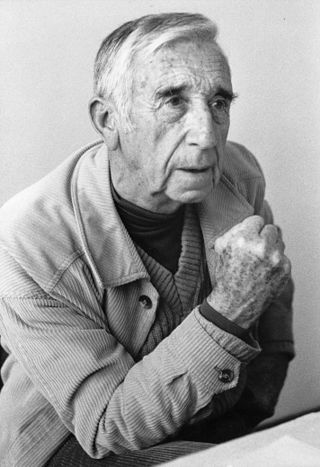
Philippe Tailliez was a friend and colleague of Jacques Cousteau. He was an underwater pioneer, who had been diving since the 1930s.

Upper Volta was a colony of French West Africa established in 1919 in the territory occupied by present-day Burkina Faso. It was formed from territories that had been part of the colonies of Upper Senegal and Niger and the Côte d'Ivoire. The colony was dissolved on 5 September 1932, with parts being administered by the Côte d'Ivoire, French Sudan and the Colony of Niger.
Events from the year 1960 in France.
The Coupe de France's results of the 1959–60 season. AS Monaco FC won the final played on 15 May 1960, beating AS Saint-Étienne.

The Colony of Niger was a French colonial possession covering much of the territory of the modern West African state of Niger, as well as portions of Mali, Burkina Faso and Chad. It existed in various forms from 1900 to 1960 but was titled the Colonie du Niger only from 1922 to 1960.
